Wheels of Support
The Mental Health Benefits of Socialising for Wheelchair Users
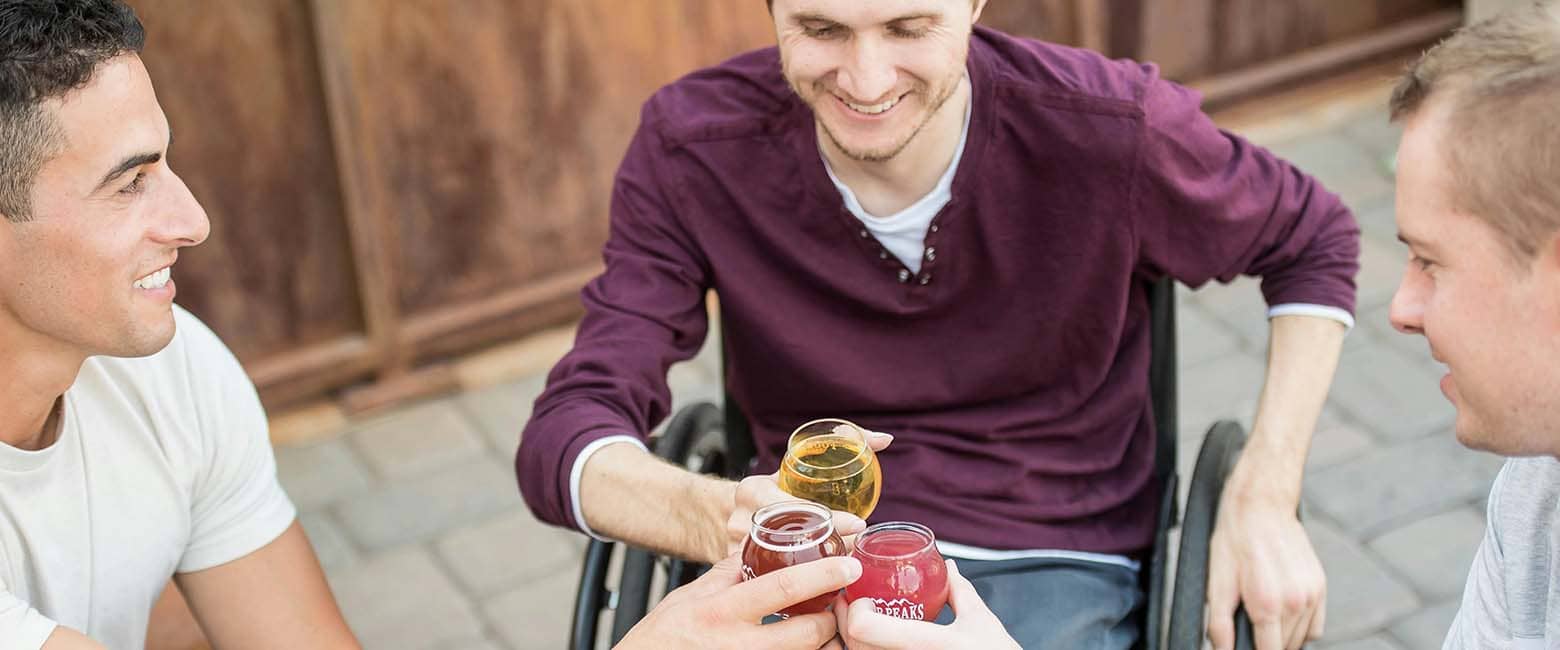
Social interaction is a fundamental aspect of human life that significantly impacts mental health and well-being. For wheelchair users, maintaining and fostering social connections can be even more crucial due to potential challenges related to mobility and accessibility. Engaging with others not only enhances emotional support but also promotes a sense of belonging and purpose. Here’s how social interaction positively influences the mental health of wheelchair users.
1. Reduces Feelings of Isolation and Loneliness
Isolation and loneliness can be prevalent among wheelchair users, particularly if mobility restrictions limit social engagement. Regular social interaction helps combat these feelings by providing companionship and a network of support. Whether through family, friends, or support groups, being part of a community can alleviate the emotional burden of loneliness.
2. Enhances Emotional Support
Having a strong social network provides emotional support during challenging times. Friends, family, and peers can offer encouragement, understanding, and empathy, which are vital for coping with stress and adversity. Emotional support helps individuals feel valued and understood, fostering resilience and positive mental health.
3. Boosts Self-Esteem and Confidence
Engaging in social activities and building relationships can significantly boost self-esteem and confidence. Positive interactions and affirmations from others reinforce self-worth and personal value. This is especially important for wheelchair users who may face societal stigmas or self-doubt related to their mobility.
4. Promotes Mental Stimulation
Social interaction stimulates the mind through conversation, shared activities, and new experiences. Mental stimulation keeps the brain active and engaged, reducing the risk of cognitive decline. Participating in discussions, games, or group activities challenges the mind and promotes mental agility.
5. Encourages a Positive Outlook
Being surrounded by supportive and positive individuals encourages a more optimistic outlook on life. Social interactions can provide new perspectives, inspire hope, and promote a sense of purpose. Positive social environments help individuals focus on their strengths and possibilities rather than limitations.
6. Provides Opportunities for Learning and Growth
Socialising offers opportunities for personal growth and learning. Engaging with diverse groups exposes individuals to new ideas, cultures, and experiences. This exposure broadens horizons, enhances knowledge, and fosters personal development. For wheelchair users, this can mean learning new adaptive techniques or discovering accessible activities.
7. Facilitates Better Coping Mechanisms
Social networks provide a platform to share experiences and coping strategies. Learning how others manage similar challenges can be empowering and provide practical solutions. Sharing stories and advice helps build effective coping mechanisms and promotes emotional well-being.
8. Strengthens Community Ties
Being part of a community fosters a sense of belonging and mutual support. Community involvement can range from local clubs and organizations to online forums and social media groups. Strong community ties provide a network of resources, assistance, and camaraderie, enhancing both mental and emotional health.
Conclusion
Social interaction is a vital component of mental health for wheelchair users. It reduces isolation, provides emotional support, boosts self-esteem, and promotes mental stimulation. By fostering connections and engaging with others, wheelchair users can enhance their mental well-being, find strength in community, and lead fulfilling lives. Embrace the power of social interaction and discover the myriad of benefits it brings to mental health and overall wellness.
Related
-

Finding the Perfect Health Service Provider: Tips for Elderly Care
-

The Role of Hydration in Health and Wellness
-

Enhancing Sleep Quality for Wheelchair Users
-

Embracing Holistic Wellness: A Guide for Seniors and Individuals with Mobility Needs
-

How Sport Rehabilitation in Mumbai Helps Athletes Bounce Back Stronger
-

Fashion Forward: Style Tips for People with Limited Mobility
-

The Ultimate Guide to Choose the Right Walking Devices for Adults
-

Focus your mind to stay healthy
-

Beyond the Wheelchair: Why Emotional Support Is Just As Important As Physical Help
-

Best Physical Therapies in Mumbai for Post-Operative Recovery
-

In-Home Health Care Services in Mumbai Using the MobiCrew App
-
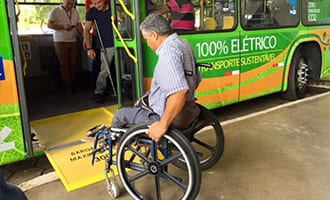
How to Choose Reliable Mobility Services at Home in Mumbai
-

The power of Pilates
-

Innovative Walking Assistance Devices for Adults
-

Best Elderly Care Apps for Seniors in 2025
-

Top Qualities to Look for in Elderly Carers in Mumbai
-
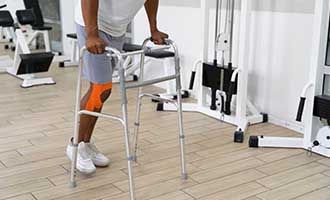
Adaptive Fitness: Exercise Tips for Individuals with Limited Mobility
-

Slippery Roads Ahead: How to Keep Elderly Loved Ones Safe This Monsoon
-

Best Wheelchairs for Senior Citizens in Mumbai Buyers Guide
-

Rolling Towards Peace
-
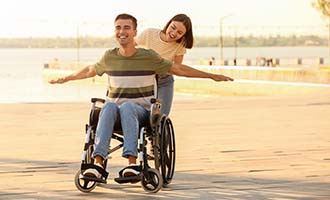
Beginners, chair cardio is the way to go!
-
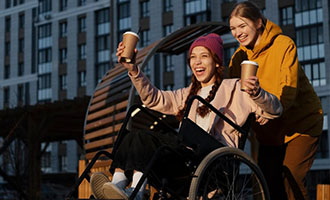
Tips To Empower People with Limited Mobility
-

Rollin' in the Greens.
-

How to Help People with Disabilities: A Guide to Inclusive Practices
-

Understanding Spina Bifida: Symptoms, Types, and Early Detection
-

Dating with a Disability: Navigating Love, Relationships, and Mobility Challenges
-

Rolling Through the Rain: A Monsoon Safety Guide for Wheelchair Users
-

Breathing right can change your life
-

How to Choose the Right Sports Rehab Treatment Clinic Near You
-

Top Benefits of Visiting a Physical Therapy Clinic
-
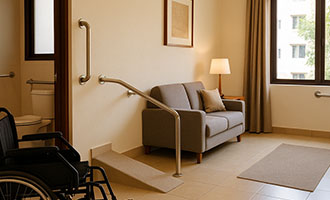
How Accessible Homes Create Truly Independent Living
-
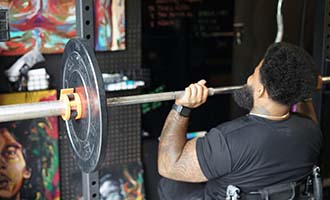
Physiotherapy tips for home
-
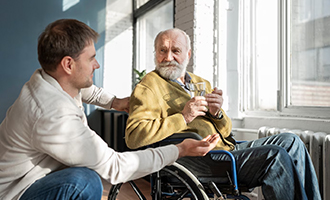
The Importance of Wheelchair Assistance for the Elderly
-

Sports Injury Prevention Strategies for Mumbais Active Youth
-

Get in the game
-

Why Routine Health Check-Ups Matter for Wheelchair Users
-

Stay in shape with Yoga
-
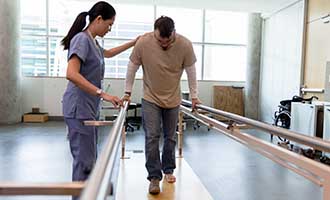
Tips to Choose the Right Physical Therapist for Your Needs
-

Benefits of Hiring a Companion for Elderly Care in Mumbai
-

Choosing the Right Care Taker Services in Mumbai for Your Needs
-

Understanding the Benefits of In-Home Elder Care for Loved Ones









